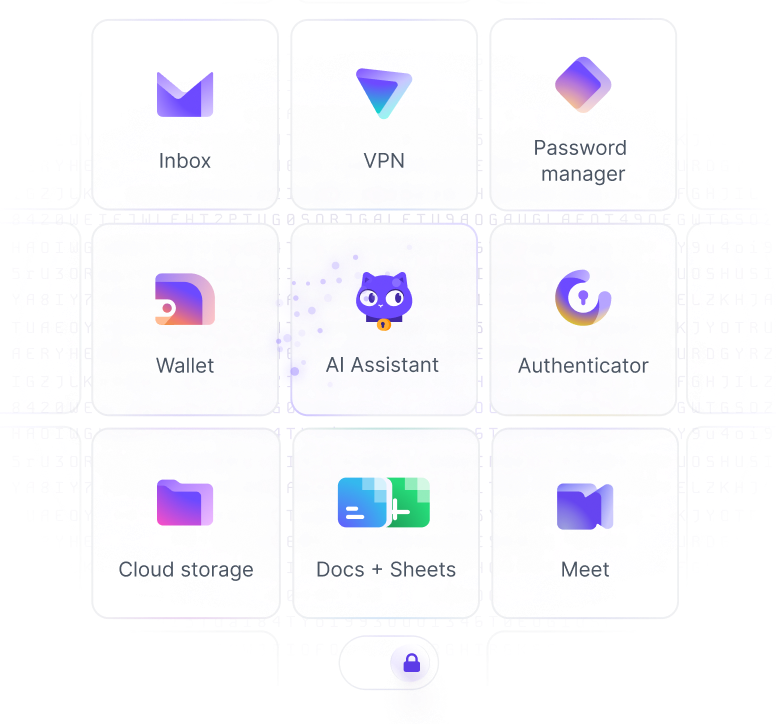Wir glauben an die Kraft von quelloffenen Lösungen
Transparenz ist der einzige Weg, um das Vertrauen unserer Community zu gewinnen.
Alle Proton-Apps sind quelloffen und wurden von externen Experten unabhängig geprüft und verifiziert. Jeder kann sehen und überprüfen, ob unsere Apps das tun, was wir behaupten.

Quelloffenheit erhöht die Sicherheit unserer Produkte
Die Software von Proton wurde von Tausenden von Experten auf der ganzen Welt unabhängig auf ihre Sicherheit geprüft. Du kannst die Prüfberichte einsehen, den Quellcode selbst prüfen oder sogar zu Verbesserungen beitragen.
Unsere Beiträge zur Open-Source-Community
Wir sind die Hauptverantwortlichen für die Pflege der weit verbreiteten quelloffenen kryptografischen Bibliotheken für die Programmiersprachen JavaScript und Go.
OpenPGPjs
JavaScript-Verschlüsselungsbibliothek
GopenPGP
Golang-Verschlüsselungsbibliothek
Indem wir unseren Quellcode für Entwickler frei zugänglich machen, fördern wir Innovationen im Bereich der Datenschutztechnologie und helfen, reale Herausforderungen im Bereich der Privatsphäre zu lösen.
Hilf Proton dabei, ein Internet zu verwirklichen, in dem die Einhaltung von Privatsphäre Standard ist
Du kannst direkt zu Proton beitragen, indem du Codeverbesserungen in unsere Repositorys einbringst oder an unserem Bug-Bounty-Programm teilnimmst.

Proton-Community
Die Beiträge der Community waren schon immer wichtig für das Wachstum von Proton. Du kannst in den sozialen Medien an der Unterhaltung mit Proton teilnehmen, Beta-Tester werden, am Proton-Lokalisierungsprojekt teilnehmen und uns Feedback geben, das uns bei der Weiterentwicklung unserer Dienste hilft.
